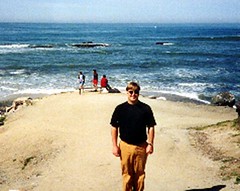Yesterday in The Arizona Republic, Ed Masley published a list article called "Six Pillars of Southern Rock," which purported to pick out the most significant Southern Rock albums without ever stating so explicitly. Here's his list
1. The Allman Brothers Band, The Allman Brothers Band (1969)In fact Masley's weasel words descriptive qualifier for his list is "six essential albums that are probably more Southern Rock than ZZ Top." Putting aside the obvious comment on the timorous adverb. This is clearly a definition that defines nothing. From the list we can in fer that Masley is looking for some kind of traditionalist notion of Southern Rock as a guitar driven entity, coming out of the wedding of blues and country traditions, which focuses on some notionally Southern version of manhood. Thus we get such a conservative list that misses at least two bands best album and has the throwaway sixth entry, which really doesn't belong despite all Masley's protestations otherwise!
2. Lynyrd Skynyrd, (pronounced 'leh-'nérd 'skin-'nérd) (1973)
3. The Allman Brothers, At the Fillmore East (1971)
4. Lynyrd Skynyrd, Street Survivors (1977)
5. The Drive-By Truckers, Southern Rock Opera (2001)
6. The Black Crowes, Shake Your Money Maker (1990)
There are many ways to redo and improve this list. I will simply offer two: a better traditionalist list followed by a better list which has a much broader definition of Southern Rock. Also I fail to see why there are six pillars? Sikhism has three, the Dominican order has four, Islam has five. But wisdom (Proverbs 9:1) has seven! and surely what said list is offering is wisdom.

Seven Pillars of [Traditional] Southern RockThis list is temporally bound as Southern Rock's great era came to a close with the inauguration of Ronald Reagan, with only the Drive-By Truckers as a unique outlier. The Allmans were the originators but Skynyrd was clearly THE BAND, thus they merit 3 slots. Their second album is better than the first, plus everyone knows the version of "Free Bird" you wanna hear is on the live double LP with Cameron Crowe's famous liner notes. Molly Hatchett stands in for all the other lesser Southern bands, some of them listed in the honorable mention section. This section is provided not as a cheat on the 7, but rather to give readers a wider range of listening/investigating options. It also points to some precursors.
1. The Allman Brothers Band, The Allman Brothers Band (1969)
2. Lynyrd Skynyrd, Second Helping (1974)
3. The Allman Brothers, At the Fillmore East (1971)
4. Lynyrd Skynyrd, One MoreForFrom the Road (1976)
5. Lynyrd Skynyrd, Street Survivors (1977)
6. The Drive-By Truckers, The Dirty South (2004)
7. Molly Hatchett, Flirtin' With Disaster (1979)
Honorable Mention:
The Outlaws, Outlaws (1975)
.38 Special Wild-Eyed Southern Boys (1981)
Derek & The Dominoes,Layla and Assorted Other Love Songs (1970)
Little Feat, Dixie Chicken (1973)
The Band, The Band (1969)
Creedence Clearwater Revival, Bayou Country (1969)

Seven Pillars of [Non-Traditional] Southern RockThe list veers away from strictly guitar driven rock venturing into rap and the new wave. I chose the B-52s second album because the red one is more "Southern" than the yellow one. I also, against the critical grain, like it better. Both Fame in Muscle Shoals and Stax in Memphis needed to be noticed in this list, thus the Dusty and Rolling Stones' honorable mentions.
1. The Allman Brothers Band, The Allman Brothers Band (1969)
2. Lynyrd Skynyrd, Second Helping (1974)
3. Big Star, Radio City (1974)
4. Pylon, Gyrate (1980)
5. Archers of Loaf, Icky Mettle (1993)
6. OutKast, Stankonia (2000)
7. The Drive-By Truckers, The Dirty South (2004)
Honorable Mention:
Dusty Springfield, Dusty In Memphis (1969)
The Rolling Stones, Sticky Fingers (1971)
The B-52s, Wild Planet (1980)
REM, Murmur (1983) or Reconstruction of the Fables (1985)
Superchunk, Tossing Seeds: Singles 89-91 (1992)
The dBs, Stands for deciBels/Repercussion (2001)









